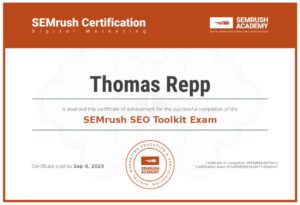 I often get the question, “How do we decide on what keywords and associated content to create?” Also, I am asked, “What keyword tools do you use?”
I often get the question, “How do we decide on what keywords and associated content to create?” Also, I am asked, “What keyword tools do you use?”
My answer is always the same.
“As the most knowledgeable in your business, Mr. Business Owner, you are the very best keyword tool…by far”
With a dumb-founded look on Mr. Business Owner’s face, I continue.
You best keyword tool is the owner:
“Mr. Business Owner, you and your employees know the questions your prospects and customers will ask customer service…as well as Google. All we have to do is glean your companies’ & industries’ keywords from those questions and we will have a great list to work from.”
Don’t get me wrong there are great tools out there such as SEORush, Raven, Ahrefs, etc. But they are expensive for the typical industrial marketer. When necessary, I often use the free versions of these tools to validate what I already know from the owner as well as the process that I will describe below.
Further, starting with the owner as my “keyword tool” helps me focus on the business reasons to be on the web and not get into the “weeds” of SEO analytics which often leads you down dead ends.
I continue to explain that most industrial marketers have unique niches and very low content saturation rates. Ranking for critical industry keywords is relatively easy for industrial brands. Not only easy…but a terrific opportunity for industrial marketers.
For example, let’s take industrial electric motor distributors. Most electric motor vendors not only sell all sizes & brands of electric motors, but most also repair electric motors.
Can you see all the keywords gleaned from just my one premise?
With the assumption that it will be difficult to rank for the primary keywords such as “electric motor”, let’s work with the customer service rep or sales person and find typical questions they get from prospects and customers that contain critical industry keywords. Typically, your first questions from prospects are about costs and service.
For example:
- How much does it cost to repair an electric motor?
- How much does it cost to rewind a large electric motor?
- Who is the local Siemens motor dealer?
- Who repairs Baldor electric motors?
- Who specializes in VPI for electric motors?
Google’s AutoComplete function:
We can then use a free “tool” from Google called AutoComplete. Give it a try. Go to Google and type in “electric motor repair”, then notice that Google will AutoComplete your entry with keyword phrases that have already been used in Google’s database. If you scroll to the bottom of the page, you will also see a list of “Searches related to electric motor repair”. From this list, you can see derivatives of “electric motor repair”.
Notice the one derivative, “electric motor repair shops”. Together with our customer, we decide this is a good keyword phrase to start with. I also like to know how much content is already on the web for “electric motor repair shops”, so I use another “tool” from Google called the allintitle: operator
Google’s allintitle: operator:
Go to Google and type in “allintitle: electric motor repair shops” (You can use or not use quotes around your keyword phrase), then hit return button. Notice that there are only 460 pages on the web with “electric motor repair shop” in the title tag. This is a perfect example of low content saturation and a great opportunity for our customer to attract pages views, leads and sales.
One of the first jobs of an inbound marketer is to fill the top-of-funnel (TOFU) with as many contacts or leads as possible so that those leads can be further qualified with e-mails, more e-books, blog posts, webinars, etc. By creating content such as “What to Look in an Electric Motor Repair Shop” is the ideal e-book because:
- Fundamentally, our prospects find this type of content very valuable as it applies to their daily tasks. This keeps them coming back for more.
- This, top-of-the-funnel (TOFU), content is extremely valuable in terms of brand building and top-of-mind awareness. (You have created a fresh brand theme that resonates…tells your story…right?)
- This content is a valuable sales tool for outbound sales group. Over the phone or in person; “Hey, go to our website and download, “What to Look in an Electric Motor Repair Shop” …that will give you a great overview of the way we do business.” If your prospect does download your e-book, you know she is a qualified lead and good reason to contact them soon.
- Once you have created a landing page and content, your content continues to “live” on the web…lurking in the weeds, 24/7, waiting to greet your inquisitive prospect that types in “electric motor repair shop”
Google Topics:
Here is another example of gleaning content ideas from the owners and using free “tools”. From talking to the customer, I noticed that Siemens Electric Motors changed their name for branding reasons back in 2012 to Simotics. From many conversations with industry professionals, it was obvious to me that most in the industry still talk about “Siemens” electric motors.
If you use the “allintitle” tool from Google you find that there is a lot of content on the web featuring “Siemens electric motors”. Again…try it. You will see that there are approximately 3,700 pages with the title tag “Siemens electric motors”. If you type “allintitle: Simotics electric motors” you find that there are only 21 pages using “Simotics electric motors” in the title tag. Holy Bonanza!
Another example of low content saturation and where your marketing efforts will have the most impact.
Again, talking to the owner we find that these motors have more strategic value. Therefore, to justify our inbound marketing efforts and to find some quick wins we decide to focus on gathering traffic for Siemens new motor sales.
Ranking for “siemens electric motors” will be difficult, as just about every Siemens dealer has done some SEO optimization. Therefore, we focus on the Simotics name using a little known fact that Google now has the ability to aggregate keywords into wider topics. Google is increasingly valuing specific topics over the “traditional” long-tail keywords.
We now know by using Google’s allintitle: operator that Siemens and their distribution network (i.e. industrial suppliers) have published a lot content mentioning both Siemens and Simotics electric motors.
So with a little knowledge from the owner and a little help from Google, we decide to write a blog titled, “Siemens & Simotics Electric Motors-What’s the Difference?” Before our focus on both “Seimens electric motors” & “Simotics electric motors” our customer was not even ranked in the top 100 with Google. Now, after two weeks they are ranked 41st for Siemens and 9th for Simotics.
With just a little more thoughtful research and content, they will soon be on in the top tier of page one of Google. More views = more leads. More leads = more sales.
The bottom line:
Keyword tools are terrific for the industrial marketer…if you want to pay for them. However, given the fact that most industrial marketers are pretty bad at creating content and the content that is created is not overwhelming in terms of volume on the web, industrial marketers have a unique opportunity.
Just put yourself in your prospects’ shoes. Chances are you already know his daily tasks at work. Put on your empathy hat and create content that addresses his daily grind at work. Take advantage of the gifts that Google has given us.
Inbound marketing for industrial at its best.
Industrial lead generation at its best.
Author:Tom Repp
A passionate marketer attempting to change the way industrial marketers leverage the web as a growth-oriented, lead generation machine. View all posts by Tom Repp





